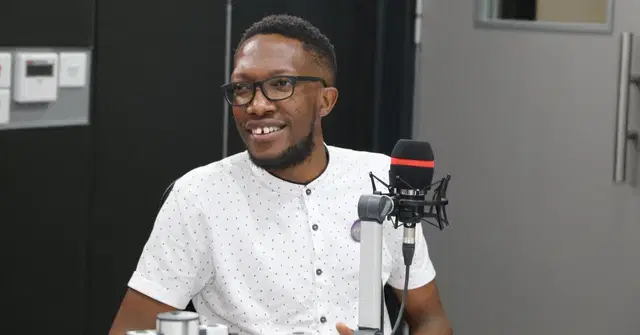

Share on:
Copy Link

By ADMI Editorial Team
3 min read
I Switched from Architecture to Sound Engineering – Tevin Sudi
ADMI: Did you always want to be a sound engineer?
TS: Growing up, I had always wanted to do something along the lines of music but I wasn’t confident enough to admit it. I had grown up around negative stereotypes about music careers.
The decision to pursue a music career would have to be made after extensive research. I settled on sound engineering because it has the perfect combination of creative and technical aspects. This, I felt, tied perfectly into my musical interests.
ADMI: What did you do that got you hired?
TS: In my opinion, I got hired because of going the extra mile in each production I handled. I was also reliable. For example, I would compose theme music for the podcasts or add any additional interviews that I recorded. There were times when I was working within tight deadlines so I had to carry work home.
ADMI: What does a typical day look like for a sound engineer?
TS: As an audio podcasting company, a typical day at Portable Voices includes planning for an episode, conducting field interviews to complement the episodes, recording the show hosts’ parts, editing and finally publishing the episodes.
ADMI: What did you work on?
TS: I edited an audiobook. In addition, I oversaw the production of the podcasts: Burudani Express Season 1, Campus Diaries Season 1, Rise StartUps (2 episodes in season 1), Talanta Viwanjani Season 1 and African History Season 1.
ADMI: What three things did you learn at your internship?
TS: During my internship, I learned how to create and follow a daily production schedule containing multiple recordings, maintaining interpersonal relationships in the workplace and using Cubase (an audio editing software-DAW).
ADMI: How did ADMI prepare you for your internship?
TS: ADMI exposed me to several fields related to sound engineering such as radio dramas. I introduced this to the programming at Portable Voices.
ADMI: What are you working on?
TS: I’m setting up my own studio space so that I can put some time into music production, recording, mixing and mastering.
75% of ADMI alumni believe they have better technical skills than other graduates. Tevin is just one out of 3000 students that have passed through ADMI since its inception.
ADMI’s unique learn and work model incorporates high-spec technical training, both in and outside the classroom. We ensure that our faculty are industry practitioners, not academics so that you as a student keep up to date on the latest practices and networks.
You also get access to high-end equipment, software and facilities just as you would in the workplace.
Through this model, our students gain not only knowledge from the classroom, but also, soft skills and practical training in their respective industries. Our goal is to ensure that upon graduation, our students have practical skills that give them an edge over other prospects in their field.
The Sound Engineering Faculty enrolls students every term and you can find more information on fees and opportunities in the industry by talking to an admissions counselor at our Caxton Campus.
Related Articles
Vincent Mutiso: A Freelance Location Sound Recordist
Vincent Mutiso is a freelance Location Sound Recordist based in Nairobi Kenya and a student at Africa Digital Media Institute (ADMI) taking a Diploma in Film and Television Production. We sat down with him to learn more about the sound department and his involvement in Zamaradi Productions’s Dream Child.
Top Creative Skills for 2025: Master These In-Demand Abilities to Stay Ahead
The creative industry is evolving at lightning speed, driven by AI, virtual production, and digital media innovations. In 2025, success will require mastering high-demand skills like video editing, animation, graphic design, and digital marketing. Whether you're an aspiring creative, a career changer, or a seasoned professional looking to upskill, staying ahead means learning industry-relevant tools and techniques. ADMI’s hands-on courses and global-standard training ensure you’re ready to thrive in the future of creative work.
How ADMI’s Global Network & World-Class Training Give You an Edge in Creative Media
The creative industry knows no borders—success requires global connections, cutting-edge skills, and industry-recognized training. At ADMI, you gain a competitive edge with a curriculum designed in collaboration with international faculty and industry leaders. With students and experts from over 27 countries, ADMI provides an immersive global learning experience that prepares you for opportunities anywhere in the world. Whether you’re looking to work with top global brands, break into the international film and media scene, or scale your creative career beyond borders, ADMI equips you with the skills, network, and mindset to succeed.
